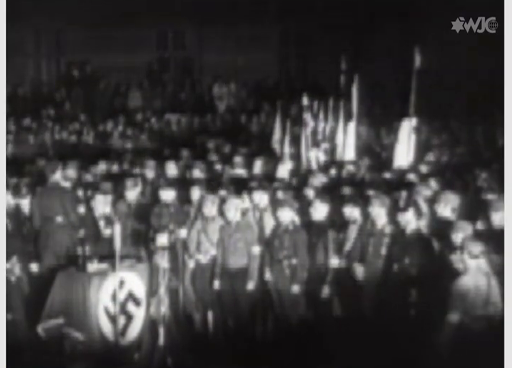1.1 The evidential reading
The evidential reading of the inseparability thesis is that, whenever cultural heritage is deliberately attacked, that is good evidence that attacks on people are imminent or already happening.
Weiss and Connelly (2017) argue that attacks on heritage are a kind of ‘alarm bell’, warning us that attacks on human beings are impending. Raphael Lemkin, who constructed the concept of genocide, once asserted that ‘burning books is not the same as burning bodies, but when one intervenes in time against mass destruction of churches and books one arrives just in time to prevent the burning of bodies’ (Lemkin, 1948).
Indeed, Lemkin’s chosen example evokes well-known real events. During World War Two, the Nazis were responsible for the genocide of approximately 6 million Jews. Prior to the start of the war, however, they were also responsible for provoking antagonism against groups seen as un-German. One practice in particular was that of book burning, as the video below highlights.

Transcript: Video 6
The idea behind the evidential reading is that practices such as book burning warn us that more serious crimes against humans are likely to follow.
